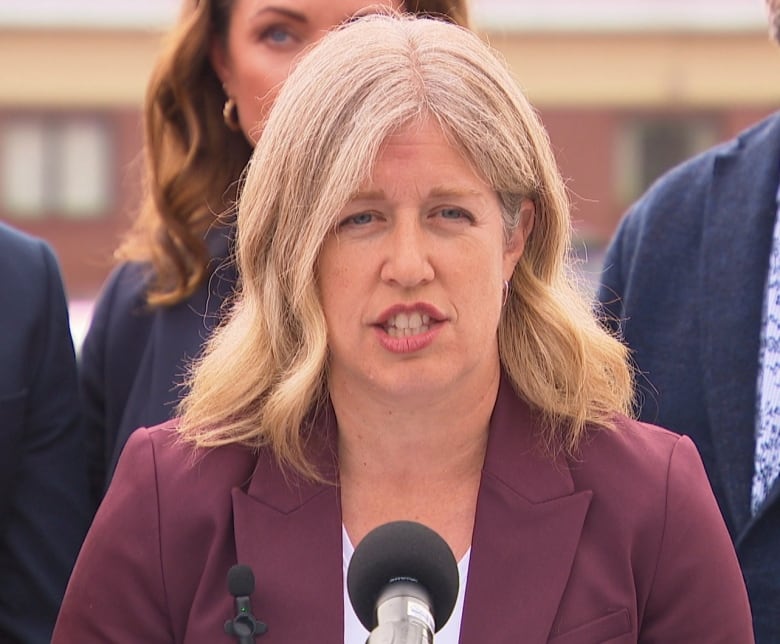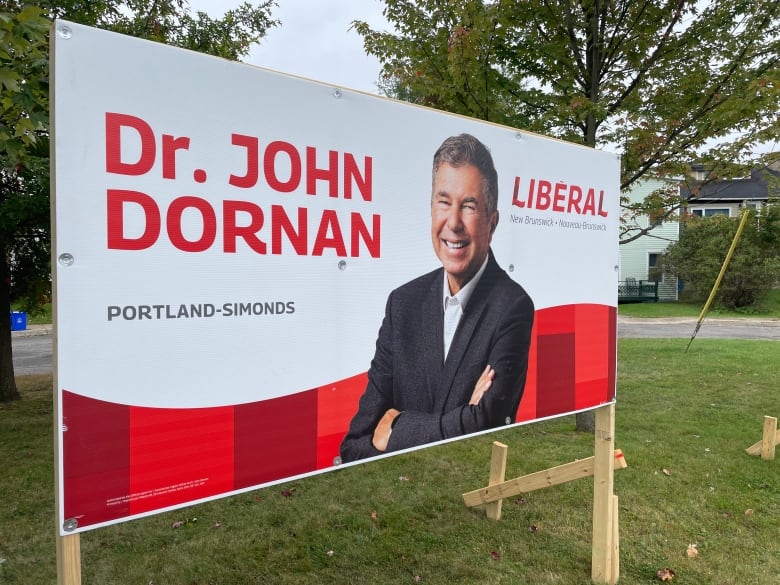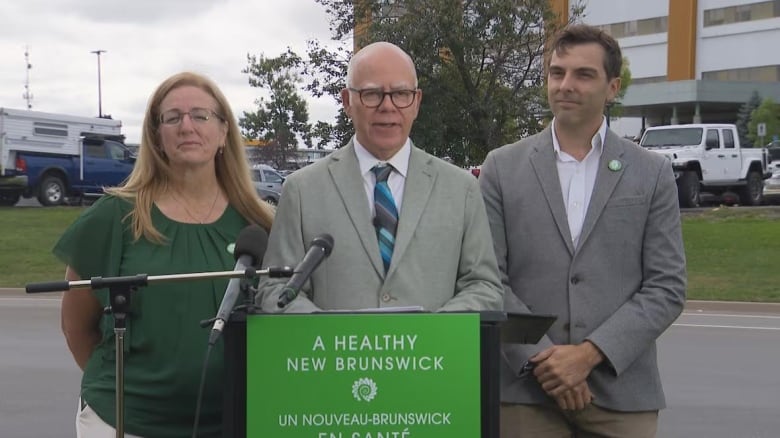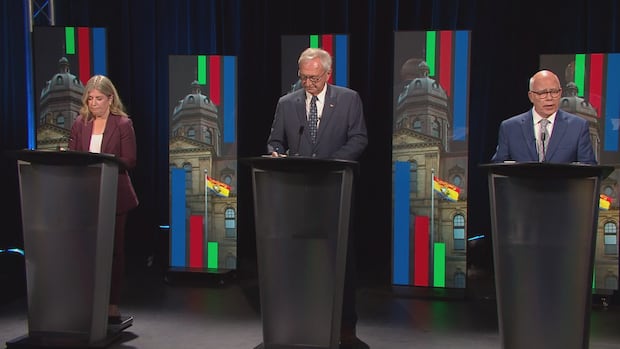A week into New Brunswick’s provincial election campaign, the state of the province’s health care has emerged as a central issue — with parties sharply divided over how bad the system’s problems have become and whether more money needs to be spent to fix them.
Jamie Gillies, political scientist at St. Thomas University, said Details Morning Fredericton Thursday that after this week’s leaders’ debate, it’s clear that health care issues will be top of mind for voters this year
“I think that’s where Susan Holt particularly wants to push the narrative of this election,” Gillies said. “Look at things like a health care system in crisis.
In Wednesday’s debate, Progressive Party leader Blaine Higgs came under attack from both Liberal Party leader Susan Holt and Green Party leader David Coon for steering debt relief money over six years, which they said should have been used to improve primary health care. .
“One of the reasons it’s taking so long to improve health care in this province is that we have a government that doesn’t want to act and invest in health care and is very inflexible in the approach they take,” Holt said.

Higgs shares that claim, and in the election he is sticking to his long-held belief that health care problems can be fixed without spending a lot.
“No one ever says the government is running things as well as it could be,” Higgs said during the debate.
“No one says we couldn’t find better results in innovative solutions.”
The state of health care in New Brunswick sparked Wednesday’s CBC leadership debate and has emerged as the main issue focused on by opposition parties.
It’s a similar argument Higgs made in the 2018 election when he pledged to cut knee and hip replacement wait times in New Brunswick by half, with innovations like better scheduling of surgery suites and redirecting existing hospital budgets “to focus on reducing waiting list.”
It was a prescription that doesn’t seem to have worked. Five years later, the wait for these actions has been the longest.
In 2018, according to the Canadian Institute of Health Information, 55 percent of hip replacements and 43 percent of knee replacements in New Brunswick were within the six-month guideline.
By 2023, these figures had dropped to 42 percent and 38 percent respectively.
Other health services have also deteriorated
This year, between January and June, provincial data show between 11 and 19 percent of cancer patients who were ready for radiation treatment had to wait more than four weeks for treatment — depending on the month.
That’s more than double the number of people who had to wait that long each month in 2018.
And last December, a national report on health care wait times released by the Fraser Institute showed that in 2023, when all procedures needed to correct a number of conditions are included, it took a median of 26.3 weeks for a patient in New Brunswick to receive treatment after made an appointment with a specialist.

That was double the national average and almost 10 weeks longer than New Brunswick patients faced in 2018.
The median wait time in New Brunswick after a doctor’s referral has grown to 52 weeks, five times the national average, for non-urgent psychiatric care.
Higgs doesn’t dispute that there are problems in New Brunswick’s health care system, but is adamant that there are solutions, not yet implemented, that can be implemented without much cost.
“We have a billion dollars more a year that we’re spending on health care than we did four or five years ago,” Higgs said during the debate.
“There would be those who say spend more money on health care and it will improve. And I will say we need to find a way to make health care better.”
National health reports support the claim that health care spending is up in New Brunswick.
The Canadian Institute of Health Information says that government spending on all types of health care in the province has increased by $983 million between 2018 and 2023.
However, that increase was the smallest, in percentage terms, of all 10 provinces.
The average increase in health spending among provinces since 2018 has been a third higher. Had New Brunswick’s capital increase matched that average, it would have added an additional $344 million to the province’s health spending in 2023.
That, and the fact that New Brunswick has run a budget surplus for the past six years, but chose to pay down $2.5 billion in provincial debt rather than further increase health spending, has become the main attack against Higgs by his opponents.

Seven of the first 13 planks released in the Liberal platform so far involve fixing health care problems in some way.
The party is also fielding two new candidates who have engaged directly with the Higgs on health issues in the past six years.
That includes former PC MLA Bruce Northrup, who sacked Higgs in 2020 over an abandoned plan to cut emergency services at smaller hospitals.
Also in the running is the former head of the English hospital system in New Brunswick, Dr. John Dornan, who was abruptly fired by Higgs in 2022 and subsequently won a $2 million wrongful termination judgment against the district.
The Greens have also made health issues a central issue in their struggle. It is proposing a $1.5 billion increase in funding over four years to shore up what it calls a “collapsing” system.

“We have an emergency in our health care system,” Coon said during the discussion.
“It’s Code Orange. Everyone has to get on deck and it’s going to take a generational investment to fix the problem.”
Higgs calls proposals like this a mistake that will put New Brunswick “back in the red.”
PCs have put forward their own $1.5 billion plan over four years to cut the HST by two percentage points, but Higgs says it will be manageable by controlling government costs, including on health care.
The party has announced a plant to spend an extra $25 million a year to improve access to doctors, nurses and others, but the party believes the savings found in the health care system can help pay for other improvements.
#Brunswick #election #draws #attention #provinces #health #woes #CBC #news
